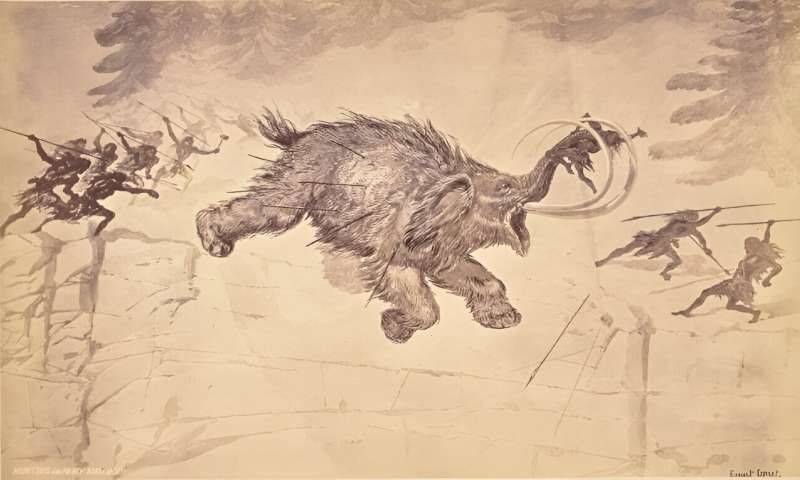Best of Last Week—Humans killed off mammoths, new way to make titanium alloys, regenerating neurons

It was an interesting week for human history research, as a team with the Danish National Research Foundation's Center for Ecological Dynamics in a Novel Biosphere, at Aarhus University, found evidence that, over time, humans have been responsible for the extinction of a number of large mammals such as mastodons, mammoths and giant sloths. Also, a large team of Indigenous study specialists affiliated with several institutions in Australia and New Zealand found evidence in a cave that an Aboriginal ritual had been passed down over 12,000 years. And an international team of researchers studying bone remains uncovered on the Tibetan plateau found evidence of now-extinct humans living there for 160,000 years.
In technology news, a combined team of chemical engineers from MIT and ATI Specialty Materials developed a new way to create titanium alloys with exceptional combinations of strength and ductility. And a team of solar engineers at the Chinese Academy of Sciences and Beijing Normal University developed a new non-fullerene acceptor that achieved 20.2% efficiency in test organic solar cells. Also, a team of AI engineers at Tsinghua University demonstrated a new brain-inspired artificial dendritic neural circuit. It was realized using a computational model of multi-gate silicon nanowire transistors with ion-doped sol-gel films. And a team of molecular engineers at the University of Chicago created the world's first anode-free sodium solid-state battery.
In other news, a team of medical researchers at Case Western Reserve University School of Medicine found that diabetes drugs such as Ozempic can reduce the risk of obesity-related cancers, such as pancreatic, kidney, ovarian, colorectal, liver and esophageal cancers. Also, a pair of psychologists in Ireland and the U.S. found associations between childhood home temperatures and those that people find comfortable as adults. And finally, an international team of biomedical researchers identified key mechanisms that can be used for regeneration of neurons—they successfully transformed glial cells into functional nerve cells.
© 2024 Science X Network